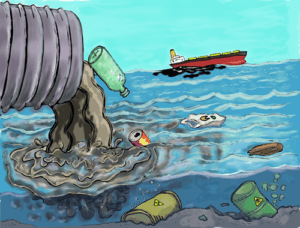We use electronics every day. Whether it’s reading this article on a tablet, streaming music through a phone, or typing up that all-important office report, we use them without even thinking.
Unfortunately, electronics get older, slower, and eventually, they stop working. It’s not enough to just upgrade to the next model though. We must also consider disposing of the broken one.
That’s where electronics recycling comes in.
Metals and Elements
While we may not think about it, all electronics hold a lot of different components made up of different mined elements. Some, like gold, are valuable for more than electronics. Others, like lead, are toxic. Without electronics recycling, all these materials end up in a landfill.
With recycling, we can reclaim a lot of these materials that would otherwise be unavailable. If we all recycle electronics responsibly, we can even reduce the mining requirements in the future.
Human Health
Electronic waste tends to be hazardous to human health. A lot of electronic waste is exported, landing in giant electronics graveyards, like Agbogbloshie in Ghana. Once electronic equipment falls into these sites, the locals take over.
Since the materials are available, someone will take advantage of it. However, there is no safety information available. Some people specialize in pulling out gold by hand, while others scavenge whole valuable pieces like monitors. They touch components containing toxic elements like mercury to do so. They’re subject to another type of health risk too.
At times, the electronics piles are lit on fire. Sometimes it’s a faster way to get to the moneymaking parts inside. Other times it’s to remove insulation from wiring. However, heating up metals in an electronic device means the dangerous ones tend to become air pollutants. In another large electronic waste area, Guiyu, 80% of children experience respiratory illnesses believed to be from the pollutants.
Environmental Health
In addition to the human consequences of improper electronic device disposal, there are also natural consequences. Even sitting on the ground, these devices can cause harm.
In a landfill or dump situation, the device casing will eventually break down. This exposes components holding hazardous chemicals. Over time, these chemicals leech into soil and groundwater, causing more extensive contamination. From there, it’s a matter of time before plants and wildlife are affected.
Another valid concern is the amount of time it takes electronic waste to break down. Glass, for example, may take up to a million years to break down. Landfill conditions are more protected than laying on the ground, so we don’t really know if some of the electronics components will break down.
Tips for Electronics Recycling
The top thing for environmental responsibility is choosing an electronics recycler. Regardless of if it’s a lifetime worth of phones or a single laptop, a responsible recycler handles the devices professionally. In many parts of the world, there are certifications available to these recyclers, making them easily recognizable.
In the event there is no responsible recycling operation available, start a box of old electronics.
We’re currently seeing massive growth in electronics recycling as part of green initiatives. A recycler will probably be available in the next couple years.


